Recently, we asked the important question of whether the consecration requested by Our Lady of Fatima was done as asked (see Did the Consecration of Russia Happen?). For it seemed that the very “period of peace” and future of the entire world were hinging upon fulfilling her requests. As Our Lady said:
[Russia] will spread her errors throughout the world, causing wars and persecutions of the Church. The good will be martyred; the Holy Father will have much to suffer; various nations will be annihilated… To prevent this, I shall come to ask for the consecration of Russia to my Immaculate Heart, and the Communion of reparation on the First Saturdays. If my requests are heeded, Russia will be converted, and there will be peace; if not, she will spread her errors throughout the world… In the end, my Immaculate Heart will triumph. The Holy Father will consecrate Russia to me, and she shall be converted, and a period of peace will be granted to the world. —visionary Sr. Lucia in a letter to the Holy Father, May 12th, 1982; The Message of Fatima, vatican.va
According to a recent report, Servant of God Sister Lucia de Jesus dos Santos of Fatima had personally concluded that ‘the collapse of Communism in Soviet-held territories constituted a “period of peace” predicted during the apparitions if the consecration was accomplished. She said this peace pertained to the greatly lessened tensions between the Soviet Union (or now just “Russia”) and the rest of the world. It was a “period” of time that had been foreseen, she said — not an “era” (as many have interpreted the message).'[1]Spirit Daily, February 10th, 2021
Is this truly the case, and is Sr. Lucia’s interpretation the final word?
The Interpretation of Prophecy
The “consecration” she was referring to was that of Pope John Paul II when he “entrusted” the whole world to Our Lady in 1984, but without mentioning Russia. Since then, a debate has ensued on whether the consecration was complete or was an “imperfect” entrustment. Again, according to Sr. Lucia, the consecration was fulfilled, the “period of peace” was accomplished, and hence it also follows, the 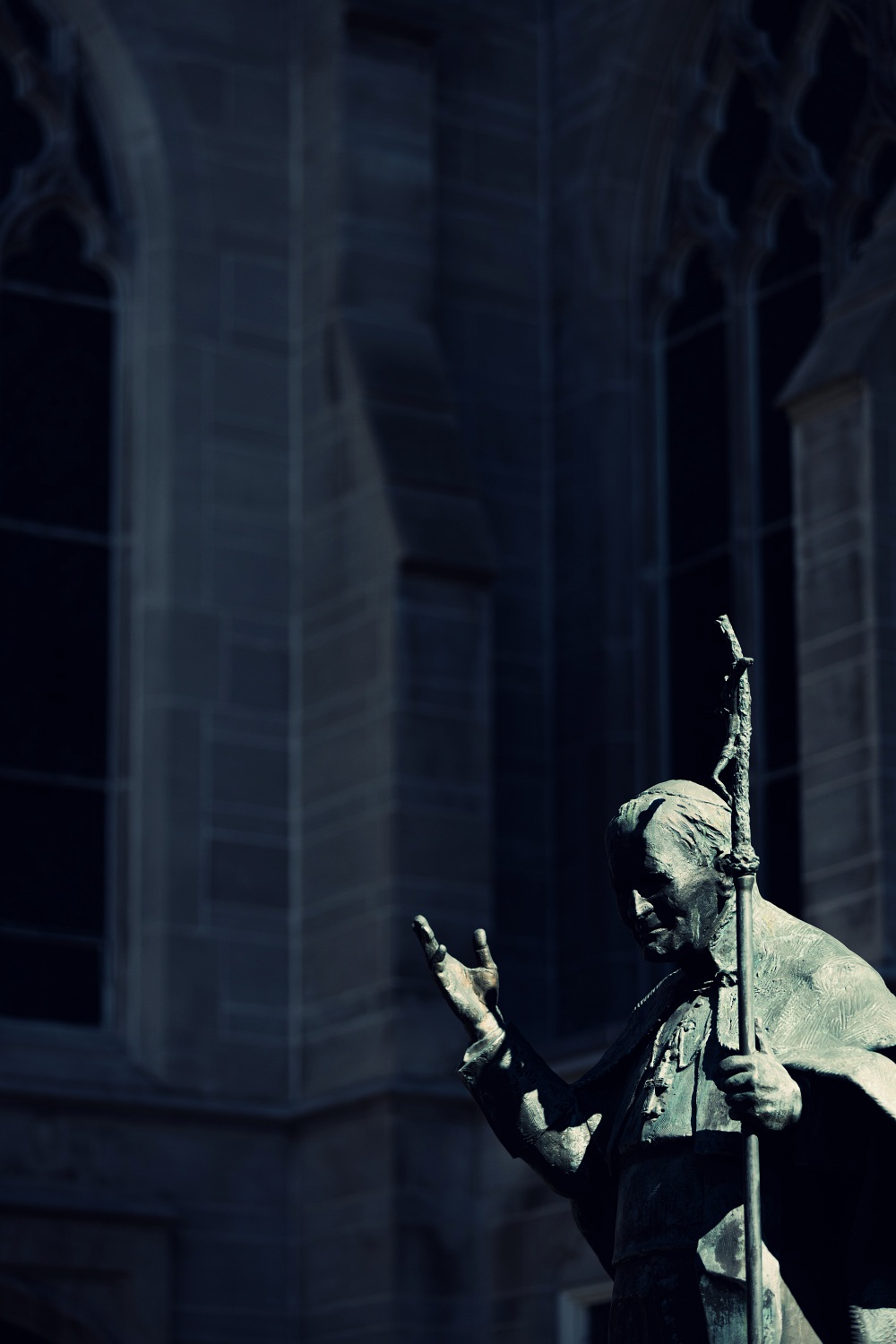 Triumph of the Immaculate Heart — though she said the Triumph was an “ongoing process.”[2]She said the Triumph of Our Lady’s Immaculate Heart had begun but was (in the words of the interpreter, Carlos Evaristo) an “ongoing process.” cf. Spirit Daily, February 10th, 2021
Triumph of the Immaculate Heart — though she said the Triumph was an “ongoing process.”[2]She said the Triumph of Our Lady’s Immaculate Heart had begun but was (in the words of the interpreter, Carlos Evaristo) an “ongoing process.” cf. Spirit Daily, February 10th, 2021
While the words of Sr. Lucia are important in this regard, the final interpretation of authentic prophecy belongs as a whole to the Body of Christ, in union with the Magisterium.
Guided by the Magisterium of the Church, the sensus fidelium [sense of the faithful] knows how to discern and welcome in these revelations whatever constitutes an authentic call of Christ or his saints to the Church. —Catechism of the Catholic Church, n. 67
In that regard, we turn especially to the popes, who are the visible authority of Christ on earth.
We urge you to listen with simplicity of heart and sincerity of mind to the salutary warnings of the Mother of God… The Roman Pontiffs… If they are instituted the guardians and interpreters of divine Revelation, contained in Holy Scripture and Tradition, they also take it as their duty to recommend to the attention of the faithful—when, after responsible examination, they judge it for the common good—the supernatural lights which it has pleased God to dispense freely to certain privileged souls, not for proposing new doctrines, but to guide us in our conduct. —POPE ST. JOHN XXIII, Papal Radio Message, February 18th, 1959; L’Osservatore Romano
In this light, there is no indication that Pope John Paul II himself viewed the end of the Cold War as the “period of peace” promised at Fatima. On the contrary,
[John Paul II] does indeed cherish a great expectation that the millennium of divisions will be followed by a millennium of unifications… that all the catastrophes of our century, all its tears, as the Pope says, will be caught up at the end and turned into a new beginning. —Cardinal Joseph Ratzinger (POPE BENEDICT XVI), Salt of the Earth, An Interview With Peter Seewald, p. 237
Just a cursory glance of global affairs after the end of the Cold War would suggest anything but a “period of peace” and certainly no end to the tragic flood of tears. Since 1989, there have been at least seven 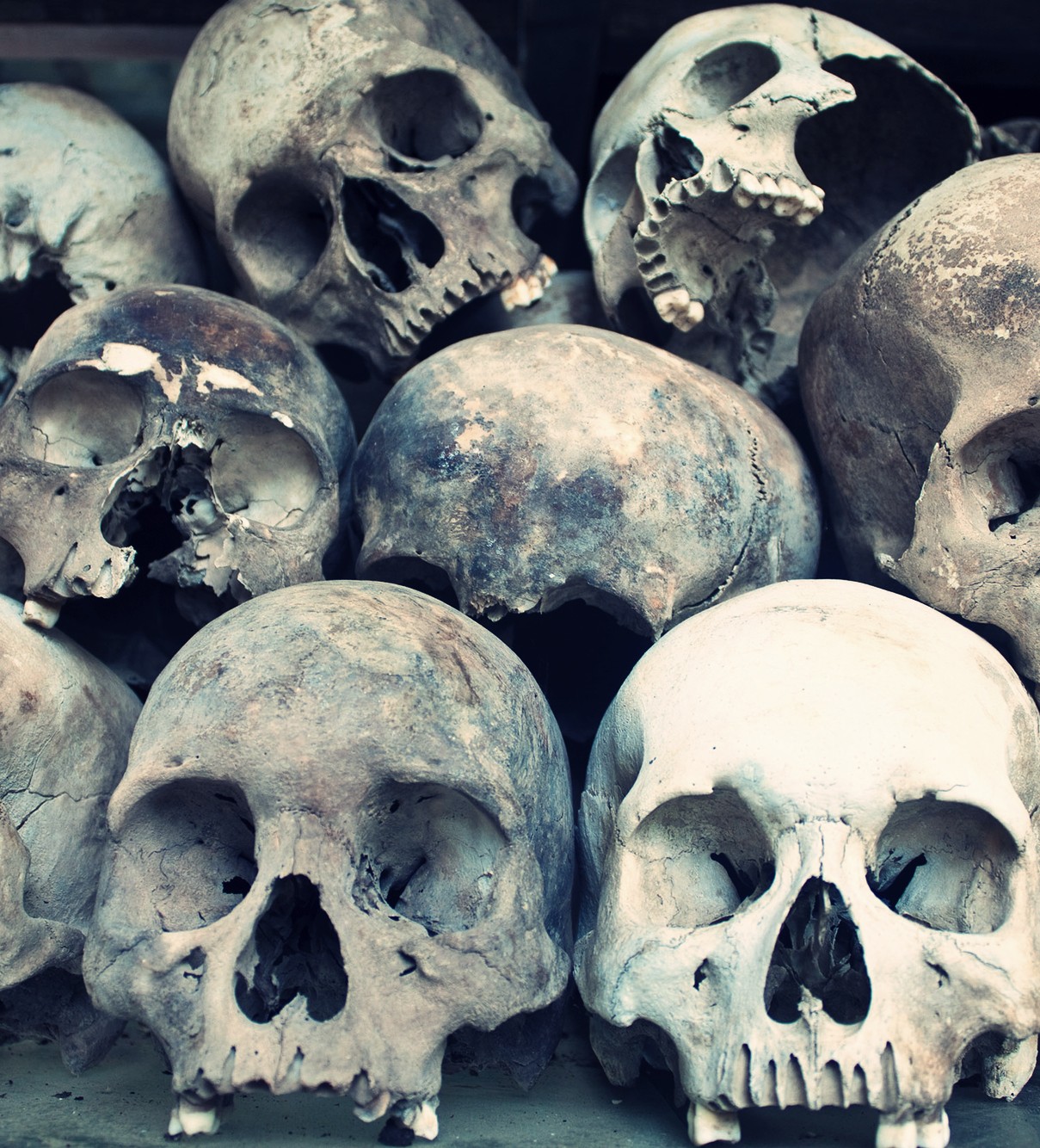 genocides starting in the early 1990’s[3]wikipedia.org and countless micro-ethnic cleansings.[4]wikipedia.org Acts of terrorism continued to spread culminating in “911” in 2001, which led to the Gulf War, killing hundreds of thousands. The ensuing destabilization of the Middle East produced the terrorist organizations Al Quaeda, ISIS, and the consequent spread of global terror, mass migrations, and a virtual emptying of Christians from the Middle East. In China and North Korea, there never was a let up of persecution, leading Pope Francis to affirm that there continues to be more martyrs this past century than the first nineteen centuries combined. And as already said, there has been no peace in the womb as the Cold War upon the unborn has raged on, only to spread now to the sick, elderly, and mentally ill through euthansia.
genocides starting in the early 1990’s[3]wikipedia.org and countless micro-ethnic cleansings.[4]wikipedia.org Acts of terrorism continued to spread culminating in “911” in 2001, which led to the Gulf War, killing hundreds of thousands. The ensuing destabilization of the Middle East produced the terrorist organizations Al Quaeda, ISIS, and the consequent spread of global terror, mass migrations, and a virtual emptying of Christians from the Middle East. In China and North Korea, there never was a let up of persecution, leading Pope Francis to affirm that there continues to be more martyrs this past century than the first nineteen centuries combined. And as already said, there has been no peace in the womb as the Cold War upon the unborn has raged on, only to spread now to the sick, elderly, and mentally ill through euthansia.
Was that really the “peace” and “triumph” promised by Our Lady?
It is legitimate to conjecture that, when re-evaluating the act of John Paul II in 1984, Sister Lucia allowed herself to be influenced by the atmosphere of optimism that spread in the world after the collapse of the Soviet Empire. It should be noted that Sister Lucia did not enjoy the charism of infallibility in the interpretation of the lofty message she received. Therefore, it is for the Church’s historians, theologians, and pastors to analyze the consistency of these statements, collected by Cardinal Bertone, with the previous statements of Sister Lucia herself. However, one thing is clear: the fruits of the consecration of Russia to the Immaculate Heart of Mary, announced by Our Lady, are far from having materialized. There is no peace in the world. —Father David Francisquini, published in the Brazilian magazine Revista Catolicismo (Nº 836, Agosto/2020): “A consagração da Rússia foi efetivada como Nossa Senhora pediu?” [“Was the consecration of Russia carried out as Our Lady requested?”]; cf. onepeterfive.com
The Magisterium: an Epochal Change
In truth, St. John Paul II was in fact expecting an epochal change in the world. And this he indeed equated to being a true “era” of peace, which he entrusted to the youth to herald:
The young have shown themselves to be for Rome and for the Church a special gift of the Spirit of God… I did not hesitate to ask them to make a radical choice of faith and life and present them with a stupendous task: to become “morning watchmen” at the dawn of the new millennium. —POPE JOHN PAUL II, Novo Millennio Inuente, n.9
…watchmen who proclaim to the world a new dawn of hope, brotherhood and peace. —POPE JOHN PAUL II, Address to the Guanelli Youth Movement, April 20th, 2002, www.vatican.va
Again, in a General Audience on September 10th, 2003, he said:
After purification through trial and suffering, the dawn of a new era is about to break. —POPE ST. JOHN PAUL II, General Audience, September 10, 2003
Cardinal Mario Luigi Ciappi was the papal theologian for Pius XII, John XXIII, Paul VI, John Paul I, as well as St. John Paul II. Nine years after the collapse of the Soviet Union, he would affirm that the “period of peace” promised by Our Lady of Fatima is yet a future event of cosmic proportions.
Yes, a miracle was promised at Fatima, the greatest miracle in the history of the world, second only to the Resurrection. And that miracle will be an era of peace which has never really been granted before to the world. —Family Catechism, (Sept. 9th, 1993), p. 35
In the year 2000, St. John Paul II would use those very words:
God loves all men and women on earth and gives them the hope of a new era, an era of peace. His love, fully revealed in the Incarnate Son, is the foundation of universal peace. When welcomed in the depths of the human heart, this love reconciles people with God and with themselves, renews human relationships and stirs that desire for brotherhood capable of banishing the temptation of violence and war. The Great Jubilee is inseparably linked to this message of love and reconciliation, a message which gives voice to the truest aspirations of humanity today. —POPE JOHN PAUL II, Message of Pope John Paul II for the Celebration of the World Day of Peace, January 1, 2000

To the one following the prophetic thread of the pontiffs, this was nothing new. A hundred years earlier, Pope Leo XIII proclaimed that a period of peace was going to come that would mark the end of conflict:
It will at length be possible that our many wounds be healed and all justice spring forth again with the hope of restored authority; that the splendors of peace be renewed, and the swords and arms drop from the hand and when all men shall acknowledge the empire of Christ and willingly obey His word, and every tongue shall confess that the Lord Jesus is in the Glory of the Father. —POPE LEO XIII, Annum Sacrum, On Consecration to the Sacred Heart, May 25th, 1899
Pope Francis would echo those words over a century later:
…[the] pilgrimage of all of the People of God; and by its light even the other peoples can walk towards the Kingdom of justice, towards the Kingdom of peace. What a great day it will be, when the weapons will be dismantled in order to be transformed into instruments of work! And this is possible! We bet on hope, on the hope of peace, and it will be possible. —POPE FRANCIS, Sunday Angelus, December 1st, 2013; Catholic News Agency, Dec. 2nd, 2013
Francis linked this “Kingdom of peace” precisely to the mission of the Mother of God:
We implore [Mary’s] maternal intercession that the Church may become a home for many peoples, a mother for all peoples, and that the way may be opened to the birth of a new world. It is the Risen Christ who tells us, with a power that fills us with confidence and unshakeable hope: “Behold, I make all things new” (Rev 21:5). With Mary we advance confidently towards the fulfillment of this promise… —POPE FRANCIS, Evangelii Gaudium, n. 288
His predecessor, Pope Pius XI, also spoke of a future change in era that would be equated to actual peace, not just cosmetic relief in political tensions:
When it does arrive, it will turn out to be a solemn hour, one big with consequences not only for the restoration of the Kingdom of Christ, but for the pacification of… the world. We pray most fervently, and ask others likewise to pray for this much-desired pacification of society. —POPE PIUS XI, Ubi Arcani dei Consilioi “On the Peace of Christ in his Kingdom”, December 23, 1922
He was echoing his predecessor, St. Pius X, who also foretold of the “restoration of all things in Christ” after the end of “apostasy” and the reign of the “Son of Perdition.” Clearly, neither of these has yet  occurred, nor much of what he envisioned—that true peace would mean the Church no longer has to “labor” within the confines of time and salvation history. The Early Church Fathers called this a “sabbath rest” before the end of the world. Indeed, St. Paul taught that “a sabbath rest still remains for the People of God.”[5]Heb 4:9
occurred, nor much of what he envisioned—that true peace would mean the Church no longer has to “labor” within the confines of time and salvation history. The Early Church Fathers called this a “sabbath rest” before the end of the world. Indeed, St. Paul taught that “a sabbath rest still remains for the People of God.”[5]Heb 4:9
Oh! when in every city and village the law of the Lord is faithfully observed, when respect is shown for sacred things, when the Sacraments are frequented, and the ordinances of Christian life fulfilled, there will certainly be no more need for us to labor further to see all things restored in Christ… And then? Then, at last, it will be clear to all that the Church, such as it was instituted by Christ, must enjoy full and entire liberty and independence from all foreign dominion… “He shall break the heads of his enemies,” that all may know “that God is the king of all the earth,” “that the Gentiles may know themselves to be men.” All this, Venerable Brethren, We believe and expect with unshakable faith. —POPE PIUS X, E Supremi, Encyclical “On the Restoration of All Things”, n.14, 6-7
Then Pope Benedict XVI shed more light on the message of Fatima suggesting that our prayers for the Triumph of the Immaculate Heart were not a mere pause in global tensions, but for the coming of the Kingdom of Christ:
…[praying for the triumph] is equivalent in meaning to our praying for the coming of God’s Kingdom… —POPE BENEDICT XVI, Light of the World, p. 166, A Conversation With Peter Seewald
While he admitted in that interview that he “may be too rationalistic… to express any expectation on my part that there is going to be a huge turnaround and that history will suddenly take a totally different course,” his prophetic call at World Youth Day in Sydney, Australia two years earlier suggested a prophetic optimism in keeping with his predecessors:
Empowered by the Spirit, and drawing upon faith’s rich vision, a new generation of Christians is being called to help build a world in which God’s gift of life is welcomed, respected and cherished—not rejected, feared as a threat, and destroyed. A new age in which love is not greedy or self-seeking, but pure, faithful and genuinely free, open to others, respectful of their dignity, seeking their good, radiating joy and beauty. A new age in which hope liberates us from the shallowness, apathy, and self-absorption which deaden our souls and poison our relationships. Dear young friends, the Lord is asking you to be prophets of this new age… —POPE BENEDICT XVI, Homily, World Youth Day, Sydney, Australia, July 20th, 2008
The Consensus: Not Yet
As previously pointed out, the prophetic consensus from other seers in the world suggests that Sr. Lucia’s interpretation of the “period of peace” may simply not be correct. The late Fr. Stefano Gobbi, whose writings have neither been formally approved nor condemned,[6]cf. “In Defense of the Orthodoxy of The Marian Movement of Priests”, catholicculture.org but which bear the Magisterium’s Imprimatur — was a close friend to John Paul II. Less than a year after the collapse of Communism’s structures in the East, Our Lady allegedly gave a different view than Sr. Lucia’s that closely mirrors our present reality and hindsight:
Russia has not been consecrated to me by the Pope together with all the bishops and thus she has not received the grace of conversion and has spread her errors throughout all parts of the world, provoking wars, violence, bloody revolutions and persecutions of the Church and of the Holy Father. —given to Fr. Stefano Gobbi in Fatima, Portugal on May 13th, 1990 on the anniversary of the First Apparition there; with Imprimatur; cf. countdowntothekingdom.com
Other seers have received similar messages that the consecration has not been done properly, and thus, the “period of peace” has not been realized, including Luz de Maria de Bonilla, Gisella Cardia, Christiana Agbo and Verne Dagenais. See Did the Consecration of Russia Happen?
What is certain is that the prophetic consensus around the world, from prophets to popes, is that there is yet to come an Era of Peace within time, and before eternity.[7]cf. Rethinking the End Times and How the Era was Lost That this Era is the same expanse of time as the “period of peace” promised at Fatima is admittedly still a matter of debate, though perhaps increasingly less so (see Fatima, and the Apocalypse). The call to penance, the First Saturdays, the consecration of Russia, the Rosary, etc. were not merely a renewed call to devotion but a path to global peace to virtually end the spread of Russia’s errors (embodied in Communism) and cease the “annihilation” of nations.
If the “period of peace” has come and gone amidst the continued flow of blood and violence, one could be forgiven for having missed it.
—Mark Mallett is the author of The Final Confrontation and The Now Word and is a co-founder of Countdown to the Kingdom.
Footnotes
| ↑1 | Spirit Daily, February 10th, 2021 |
|---|---|
| ↑2 | She said the Triumph of Our Lady’s Immaculate Heart had begun but was (in the words of the interpreter, Carlos Evaristo) an “ongoing process.” cf. Spirit Daily, February 10th, 2021 |
| ↑3 | wikipedia.org |
| ↑4 | wikipedia.org |
| ↑5 | Heb 4:9 |
| ↑6 | cf. “In Defense of the Orthodoxy of The Marian Movement of Priests”, catholicculture.org |
| ↑7 | cf. Rethinking the End Times and How the Era was Lost |



 Alicja Lenczewska
Alicja Lenczewska

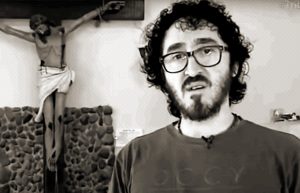
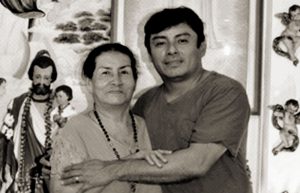
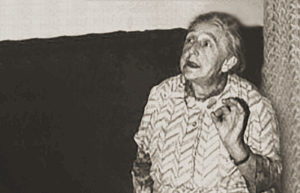 Elizabeth Kindelmann
Elizabeth Kindelmann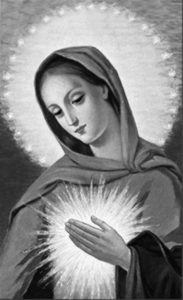 Through what became The Spiritual Diary, Jesus and Mary taught Elizabeth, and they continue to instruct the faithful in the divine art of suffering for the salvation of souls. Tasks are assigned for each day of the week, which involve prayer, fasting, and night vigils, with beautiful promises attached to them, laced with special graces for priests and the souls in purgatory. In their messages, Jesus and Mary say that The Flame of Love of the Immaculate Heart of Mary is the greatest grace given to mankind since the Incarnation. And in the not-so-distant future, her flame will engulf the entire world.
Through what became The Spiritual Diary, Jesus and Mary taught Elizabeth, and they continue to instruct the faithful in the divine art of suffering for the salvation of souls. Tasks are assigned for each day of the week, which involve prayer, fasting, and night vigils, with beautiful promises attached to them, laced with special graces for priests and the souls in purgatory. In their messages, Jesus and Mary say that The Flame of Love of the Immaculate Heart of Mary is the greatest grace given to mankind since the Incarnation. And in the not-so-distant future, her flame will engulf the entire world.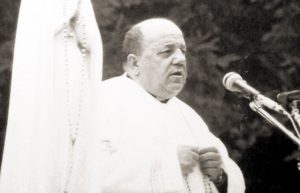 Father Stefano Gobbi
Father Stefano Gobbi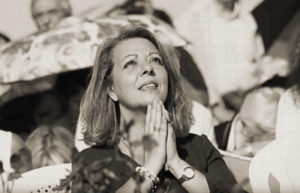 Why Gisella Cardia?
Why Gisella Cardia?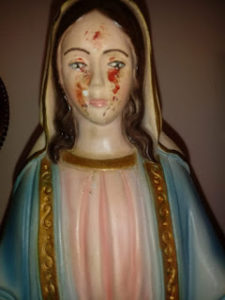 Thirdly, the messages have frequently been accompanied by visible phenomena, photographic evidence found in In Cammino con Maria, which cannot be the fruit of subjective imagination, notably the presence of the stigmata on Giselle’s body and and the appearance of crosses or religious texts in blood on Gisella’s arms. See the pictures taken from her apparition website
Thirdly, the messages have frequently been accompanied by visible phenomena, photographic evidence found in In Cammino con Maria, which cannot be the fruit of subjective imagination, notably the presence of the stigmata on Giselle’s body and and the appearance of crosses or religious texts in blood on Gisella’s arms. See the pictures taken from her apparition website 
 Jennifer
Jennifer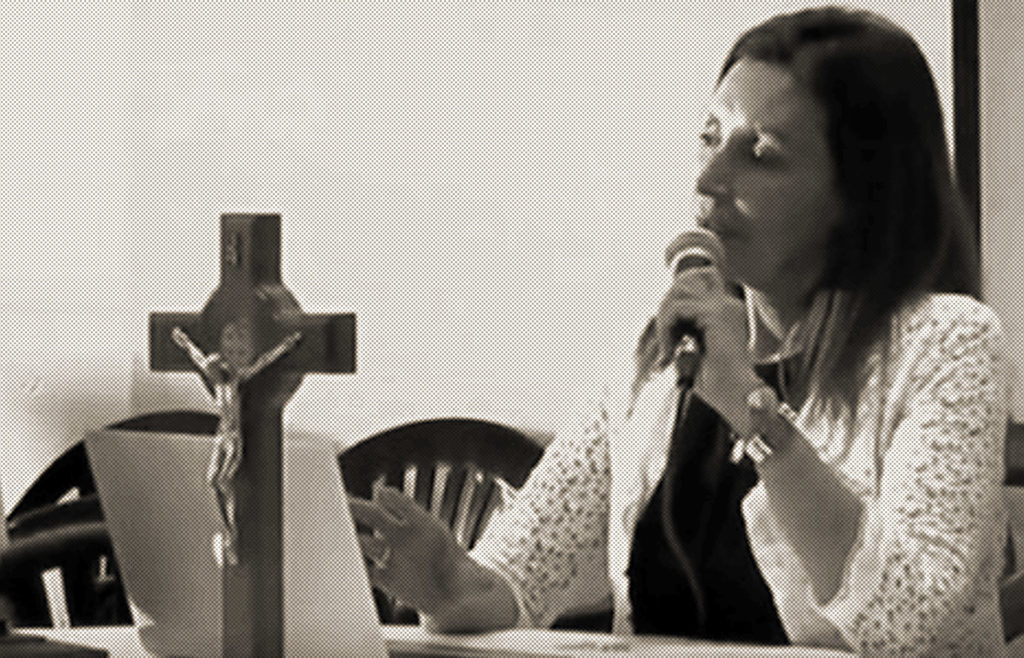
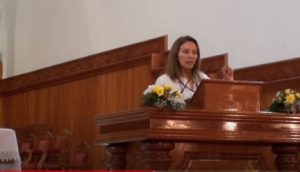
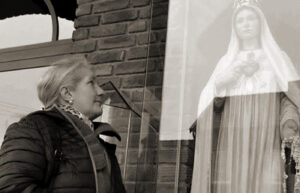 Why Manuela Strack?
Why Manuela Strack?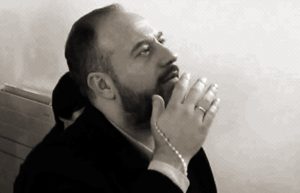

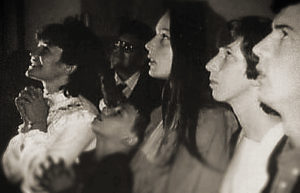 Why the Visionaries of Our Lady of Medjugorje?
Why the Visionaries of Our Lady of Medjugorje?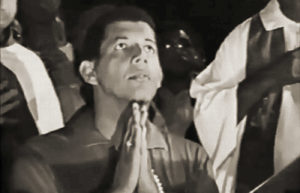 Why Pedro Regis?
Why Pedro Regis?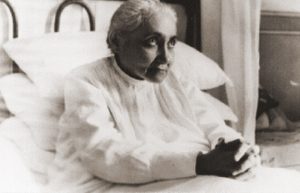 Why the Servant of God Luisa Piccarreta?
Why the Servant of God Luisa Piccarreta? of the saints. It wasn’t until she became a “Daughter of Mary” that the nightmares finally ceased at the age of eleven. In the following year, Jesus began to speak interiorly to her especially after receiving Holy Communion. When she was thirteen, He appeared to her in a vision that she witnessed from the balcony of her home. There, in the street below, she saw a crowd and armed soldiers leading three prisoners; she recognized Jesus as one of them. When He arrived beneath her balcony, He raised his head and cried out: “Soul, help Me!” Deeply moved, Luisa offered herself from that day on as a victim soul in expiation for the sins of mankind.
of the saints. It wasn’t until she became a “Daughter of Mary” that the nightmares finally ceased at the age of eleven. In the following year, Jesus began to speak interiorly to her especially after receiving Holy Communion. When she was thirteen, He appeared to her in a vision that she witnessed from the balcony of her home. There, in the street below, she saw a crowd and armed soldiers leading three prisoners; she recognized Jesus as one of them. When He arrived beneath her balcony, He raised his head and cried out: “Soul, help Me!” Deeply moved, Luisa offered herself from that day on as a victim soul in expiation for the sins of mankind. immobile, rigid-like state that appeared almost as if she were dead. It was only when a priest made the sign of the Cross over her body that Luisa regained her faculties. This remarkable mystical state persisted until her death in 1947—followed by a funeral that was no little affair. During that period in her life, she suffered no physical illness (until she succumbed to pneumonia at the end) and she never experienced bedsores, despite being confined to her little bed for sixty-four years.
immobile, rigid-like state that appeared almost as if she were dead. It was only when a priest made the sign of the Cross over her body that Luisa regained her faculties. This remarkable mystical state persisted until her death in 1947—followed by a funeral that was no little affair. During that period in her life, she suffered no physical illness (until she succumbed to pneumonia at the end) and she never experienced bedsores, despite being confined to her little bed for sixty-four years.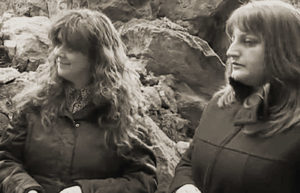 Why Simona and Angela?
Why Simona and Angela?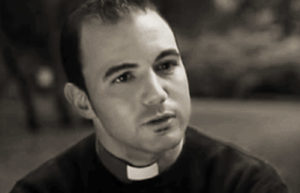
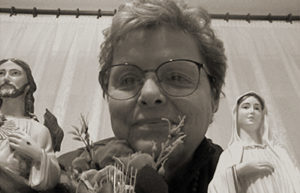 Valeria Copponi
Valeria Copponi